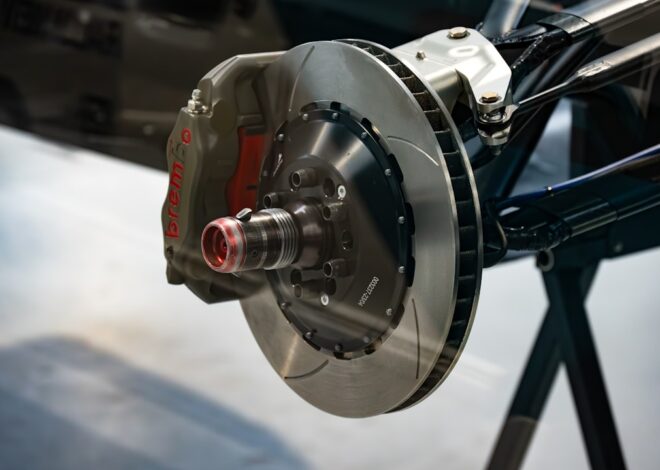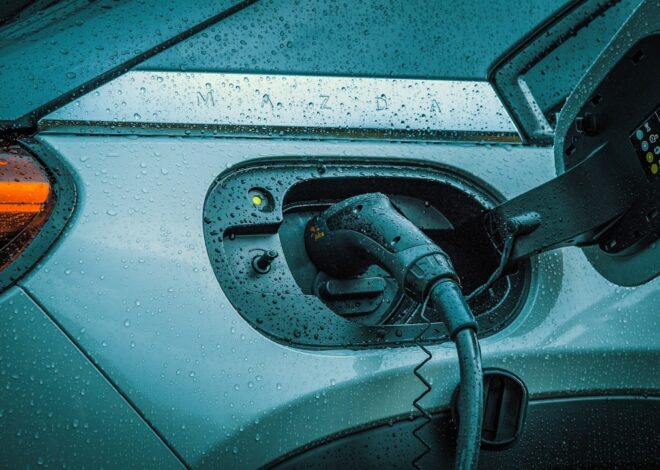
Maximizing Performance: Electric Fuel Pumps
Electric fuel pumps are integral components in modern automotive fuel systems, serving the crucial function of delivering fuel from the tank to the engine. Unlike mechanical fuel pumps, which rely on engine vacuum or mechanical motion to operate, electric fuel pumps utilize an electric motor to create the necessary pressure for fuel delivery. This design allows for more consistent fuel flow and pressure, which is essential for optimal engine performance.
The electric fuel pump is typically submerged in the fuel tank, where it can efficiently draw fuel and push it through the fuel lines to the engine. The operation of electric fuel pumps is governed by several factors, including the type of fuel being used, the engine’s requirements, and the specific design of the pump itself. Most electric fuel pumps are designed to maintain a specific pressure range, usually between 30 to 60 psi, depending on the vehicle’s engine specifications.
This pressure is vital for ensuring that the fuel injectors can atomize the fuel properly, allowing for efficient combustion. Additionally, electric fuel pumps often feature built-in filters to prevent contaminants from reaching the engine, further enhancing their role in maintaining engine health and performance.
Key Takeaways
- Electric fuel pumps play a crucial role in delivering fuel from the tank to the engine in modern vehicles.
- When choosing an electric fuel pump for your vehicle, consider factors such as flow rate, pressure, and compatibility with your vehicle’s fuel system.
- Proper installation and regular maintenance are essential for ensuring the optimal performance and longevity of electric fuel pumps.
- Upgrading to a high-performance electric fuel pump can improve fuel delivery and overall vehicle performance.
- Common issues with electric fuel pumps can be troubleshooted by checking for fuel leaks, testing the pump’s voltage, and inspecting the fuel filter and lines.
Choosing the Right Electric Fuel Pump for Your Vehicle
Selecting the appropriate electric fuel pump for your vehicle involves understanding both your vehicle’s requirements and the specifications of available pumps. Factors such as engine size, horsepower, and whether the vehicle is naturally aspirated or turbocharged play significant roles in determining the right pump. For instance, a high-performance engine may require a pump capable of delivering higher flow rates and pressures than a standard engine.
Therefore, it is essential to consult your vehicle’s service manual or a knowledgeable automotive professional to ascertain the correct specifications. In addition to flow rate and pressure, compatibility with your vehicle’s fuel system is another critical consideration. Electric fuel pumps come in various configurations, including inline and in-tank designs.
In-tank pumps are generally quieter and more efficient since they are submerged in fuel, which helps with cooling and reduces noise. Inline pumps, on the other hand, are easier to install in some applications but may require additional modifications to ensure proper operation. Furthermore, it is essential to consider the type of fuel being used—whether gasoline or ethanol blends—as some pumps are specifically designed to handle certain types of fuels better than others.
Installation and Maintenance Tips for Electric Fuel Pumps

Proper installation of an electric fuel pump is crucial for ensuring its longevity and optimal performance. When installing a new pump, it is vital to follow the manufacturer’s instructions closely. This typically involves securing the pump in place, connecting it to the power supply, and ensuring that all fuel lines are properly attached without leaks.
It is also advisable to replace any old or worn-out components, such as fuel filters and hoses, during installation to prevent future issues. Additionally, using high-quality connectors and ensuring that all electrical connections are secure can help avoid potential failures. Maintenance of electric fuel pumps is often overlooked but is essential for their continued operation.
Regularly checking for signs of wear or damage can help catch issues before they lead to pump failure. This includes inspecting electrical connections for corrosion or loose wires and ensuring that the pump is free from debris or contaminants that could impede its function. It is also beneficial to monitor fuel pressure regularly; if there are fluctuations outside of the normal range, it may indicate a problem with the pump or other components in the fuel system.
Keeping an eye on these factors can significantly extend the life of your electric fuel pump.
Upgrading Your Electric Fuel Pump for Improved Performance
| Electric Fuel Pump Upgrade | Performance Metric |
|---|---|
| Flow Rate | Increased fuel flow for higher performance |
| Pressure Rating | Higher pressure for improved fuel delivery |
| Reliability | Enhanced durability and consistent performance |
| Compatibility | Works with various fuel types and vehicle models |
| Installation | Straightforward installation process |
Upgrading your electric fuel pump can be a strategic move if you’re looking to enhance your vehicle’s performance, especially in high-demand situations such as racing or towing. A higher-capacity pump can provide increased flow rates and pressure, which are essential for engines that have been modified for greater power output. When considering an upgrade, it’s important to select a pump that not only meets but exceeds your engine’s requirements to ensure that it can handle future modifications as well.
In addition to selecting a higher-capacity pump, upgrading other components of your fuel system may also be necessary to fully realize performance gains. This could include larger fuel lines, high-performance fuel filters, and even upgraded injectors that can better utilize the increased flow from the new pump. It’s also worth noting that an upgraded electric fuel pump may require a more robust electrical system; therefore, ensuring that your vehicle’s wiring can handle the increased load is crucial.
By taking a holistic approach to upgrading your fuel system, you can achieve significant improvements in performance and reliability.
Troubleshooting Common Issues with Electric Fuel Pumps
Electric fuel pumps can encounter various issues over time, leading to performance problems or even complete failure. One common issue is a drop in fuel pressure, which can result from a clogged filter or a failing pump. If you notice symptoms such as poor acceleration or difficulty starting your vehicle, checking the fuel pressure should be one of your first steps.
A pressure gauge can be used to measure the output; if it falls below specifications, further investigation into the pump and filter may be necessary. Another frequent problem is electrical failure, which can manifest as intermittent operation or complete shutdown of the pump. This could be due to faulty wiring, a blown fuse, or a malfunctioning relay.
Inspecting these components can often reveal underlying issues that need addressing. Additionally, listening for unusual noises from the pump—such as whining or grinding—can indicate mechanical failure within the unit itself. In such cases, replacement may be necessary to restore proper function.
Enhancing Fuel Delivery with High-Performance Electric Fuel Pumps

High-performance electric fuel pumps are designed specifically for applications where standard pumps may fall short. These pumps typically offer higher flow rates and pressures than their stock counterparts, making them ideal for modified engines or racing applications where maximum power output is desired. Many high-performance pumps also feature advanced designs that reduce noise and improve reliability under extreme conditions.
When selecting a high-performance electric fuel pump, it’s essential to consider not only flow rate but also compatibility with your existing fuel system components. Some high-performance pumps may require larger diameter fuel lines or specialized fittings to ensure optimal performance. Additionally, these pumps often come with enhanced filtration systems that help protect sensitive engine components from debris and contaminants.
By investing in a high-performance electric fuel pump tailored to your specific needs, you can significantly enhance your vehicle’s overall fuel delivery system.
The Benefits of Using Electric Fuel Pumps in Performance Vehicles
The advantages of using electric fuel pumps in performance vehicles extend beyond mere convenience; they play a pivotal role in achieving optimal engine performance and efficiency. One significant benefit is their ability to maintain consistent pressure across varying engine loads and speeds. This consistency ensures that the engine receives an adequate supply of fuel at all times, which is particularly important during high-demand situations such as acceleration or climbing steep grades.
Moreover, electric fuel pumps tend to be more compact and lightweight compared to mechanical pumps, allowing for more flexible installation options within the vehicle’s design. This can be particularly advantageous in performance applications where weight distribution and space optimization are critical factors. Additionally, many modern electric pumps are designed with advanced technology that minimizes noise and vibration during operation, contributing to a more pleasant driving experience without sacrificing performance.
Comparing Electric Fuel Pumps to Mechanical Fuel Pumps
When comparing electric fuel pumps to mechanical ones, several key differences emerge that highlight their respective advantages and disadvantages. Mechanical fuel pumps operate based on engine vacuum or direct mechanical action; they are generally simpler in design and installation but may struggle with maintaining consistent pressure under varying conditions. This inconsistency can lead to performance issues in high-demand scenarios where precise fuel delivery is crucial.
In contrast, electric fuel pumps offer superior control over fuel delivery due to their ability to maintain consistent pressure regardless of engine speed or load conditions. They also tend to be more efficient at delivering higher volumes of fuel when needed, making them ideal for modern engines that require precise fueling strategies for optimal performance. However, electric pumps do require an electrical supply and may necessitate additional wiring or modifications during installation.
Ultimately, the choice between electric and mechanical fuel pumps will depend on specific vehicle requirements and intended use cases; each has its own set of benefits that cater to different automotive needs.
FAQs
What is an electric fuel pump?
An electric fuel pump is a device that delivers fuel from the fuel tank to the engine at the required pressure for proper combustion.
How does an electric fuel pump work?
An electric fuel pump is typically located inside the fuel tank and is activated by the vehicle’s engine control unit. It uses an electric motor to create pressure and push fuel through the fuel lines to the engine.
What are the advantages of an electric fuel pump?
Electric fuel pumps are more efficient and reliable compared to mechanical fuel pumps. They can also deliver fuel at a consistent pressure, which is essential for modern fuel injection systems.
What are the common issues with electric fuel pumps?
Common issues with electric fuel pumps include clogging due to debris in the fuel tank, electrical problems, and wear and tear of the pump components over time.
How can I maintain an electric fuel pump?
Regularly changing the fuel filter and keeping the fuel tank clean can help maintain the performance of an electric fuel pump. It is also important to use high-quality fuel to prevent clogging and damage to the pump.


